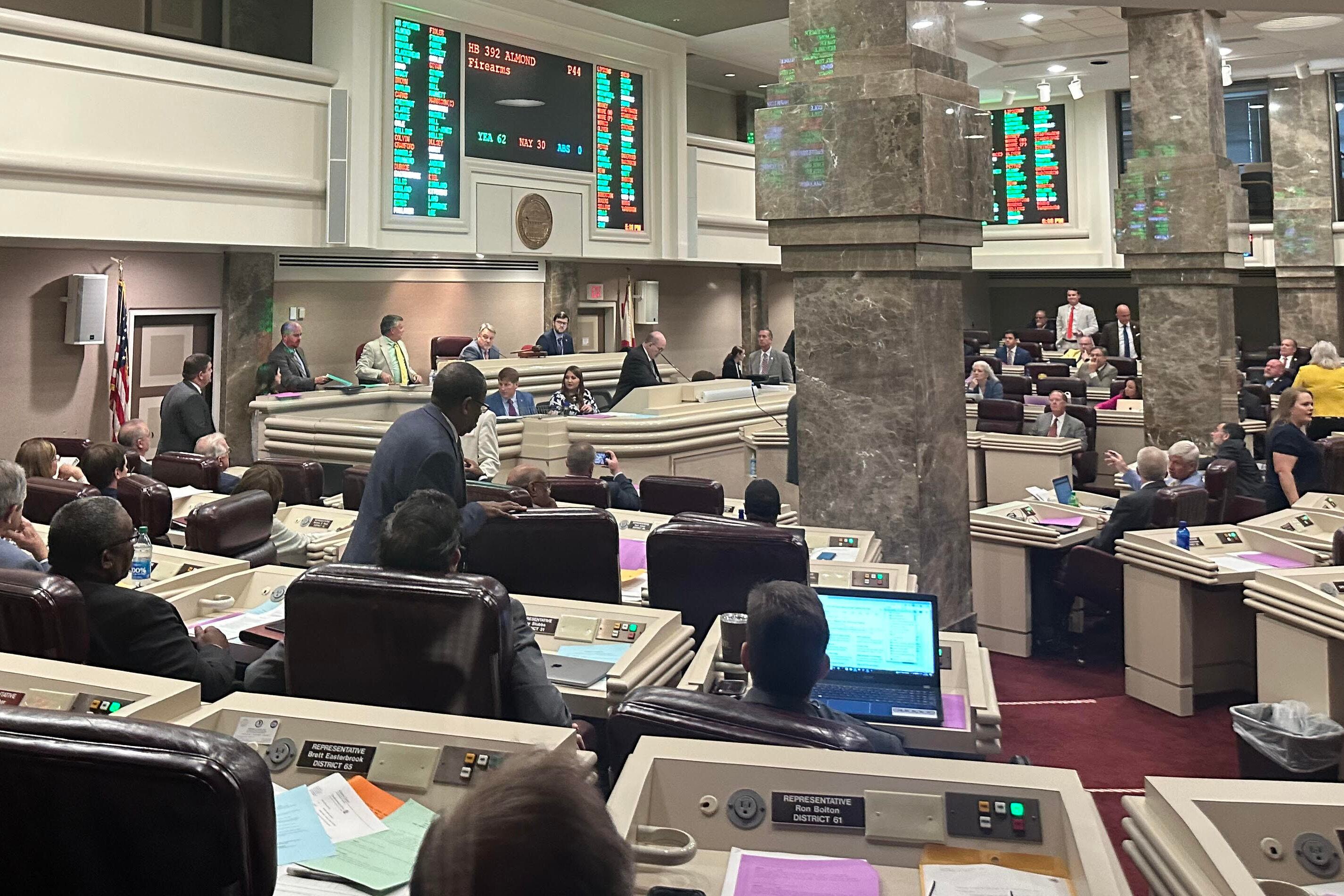MONTGOMERY — On Tuesday, the Alabama House of Representatives breezed through its nearly $11 billion Education Trust Fund (ETF) budgets and supplemental appropriations bills for the fiscal year 2025 with hardly any debate.
House Bill 147 provided supplemental appropriations from the Education Trust Fund Advancement and Technology Fund to various school systems, universities, and other entities.
Gov. Kay Ivey recommended $700 million for the supplemental bill. The substitute amendment raised total appropriations to $1 billion. Of that, $274 million will go to institutions of higher education, and $726 million will go to Alabama's educational institutions.
Nearly $192 million goes to Alabama's four-year colleges.
Roughly $508 million of the funds will go to various institutions allocated by the Alabama State Department of Education. Of that, $233,000 will go to Magic City Acceptance Academy, a publicly-funded charter school designed to foster an "LGBTQ-affirming learning environment."
In March, Gov. Kay Ivey approved legislation that prohibits state agencies, schools and colleges from sponsoring or requiring students and employees to attend or participate in any diversity, equity, and inclusion program, training, orientation, or coursework that advocates for or requires consent to a divisive concept. The bill would also prohibit public entities from "promoting, endorsing, or requiring affirmation of certain divisive concepts relating to race, sex, or religion."
1819 News asked Magic City Acceptance Academy to see if the DEI ban would affect the school's funding. The school did not immediately respond.
House Bill 144 (HB144) allocates $651,202,906 from the Education Trust Fund for the fiscal year ending 2025 to various state departments, agencies and higher education institutions.
Some supplemental provisions rely on recent legislation to repeal the 2023 law that created a $30 million loan program for financially distressed universities after its designed recipient, Birmingham-Southern College, closed its doors for good.
State Rep. Laura Hall introduced an amendment to allocate the $30 million from the expected repeal of the Distressed Institutions of Higher Education Act to the state's summer reading program. Garrett motioned to table the motion, which passed 73-28.
State Rep. A.J. McCampbell (D-Demopolis) also introduced an amendment seeking a $20 million one-time appropriation for the proposed Alabama School of Healthcare Science in his district. The amendment passed unanimously.
If the project does not continue, the funds would be reapportioned elsewhere.
State Rep. Napoleon Bracy initially lamented the lack of increased funding for Alabama State University (ASU) while the other four-year universities received increased one-time appropriations. He introduced an amendment to give ASU 1 million in increased funding.
The bill passed with a vote of 103-0.
House Bill 145, the total ETF budget, makes $9.35 billion in appropriations for the support, maintenance and development of public education in Alabama. The ETF increased $550 million from last year, growing from $8.8 billion in the 2024 fiscal year.
The budget contained appropriations expected to receive pushback from some conservative House members, but none came.
The budget included an increase in appropriations for the Alabama Department of Archives and History (ADAH) by over $200,000.
ADAH found itself in hot water over its controversial 2023 LGBTQ history luncheon, "Invisible No More: Alabama's LGBTQ+ History." In response, lawmakers attempted to strip ADAH of its $5 million ETF supplemental appropriations during last year's session.
This year, State Sen. Chris Elliott (R-Josephine) introduced several bills to change the makeup of ADAH. That bill is still awaiting a House vote.
The ETF budget also included a $750,000 decrease in funding to the Alabama Public Library Service (APLS).
The APLS has found itself at the center of the statewide controversy surrounding sexually explicit children's books. Residents have petitioned the APLS board for nearly a year to implement policies to address the issue.
Both House Speaker Nathaniel Ledbetter (R-Rainsville) and House Majority Leader Scott Stadthagen (R-Hartselle) sent letters to the board, demanding action, saying they would use their "budgetary authority" to address the issue if APLS did not.
The budget passed 102-1, with the only "no" vote on the bill coming from newly elected State Rep. Marilyn Lands (D-Huntsville).
The budget also gave a 2% raise to nearly all public school employees and $11 million to fund 200 additional assistant principals.
To connect with the author of this story or to comment, email craig.monger@1819news.com.
Don't miss out! Subscribe to our newsletter and get our top stories every weekday morning.










